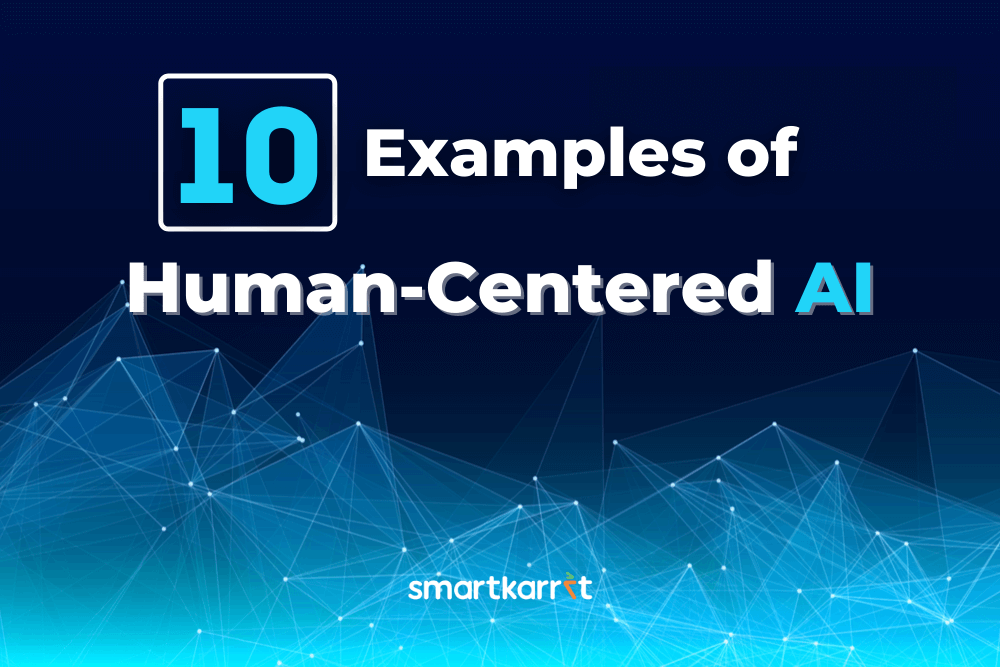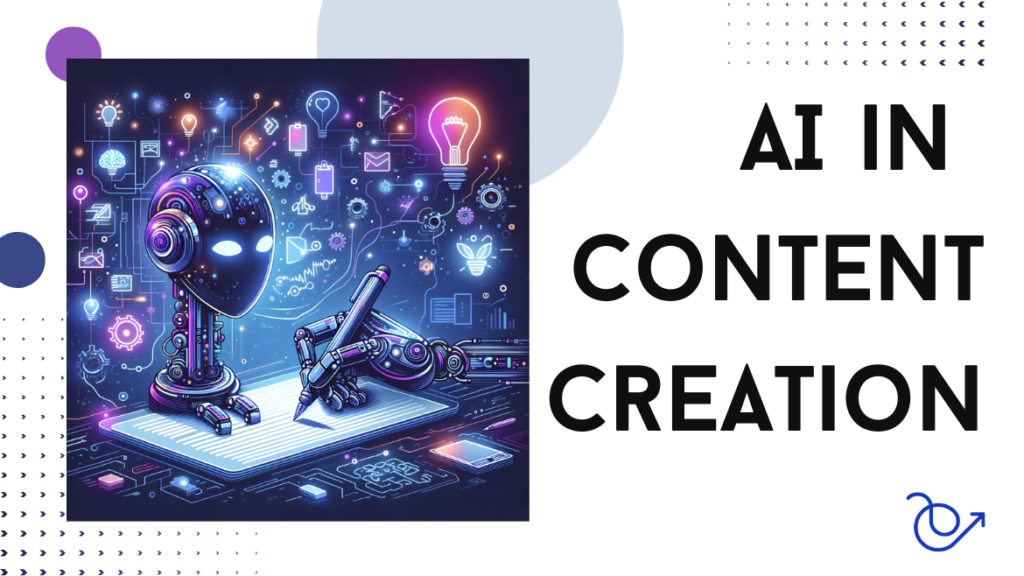Human-Centered AI: A Conversation With Microsoft's Design Lead

Table of Contents
Prioritizing User Needs and Inclusivity in AI Design
Human-centered AI design starts with understanding the diverse needs and perspectives of all users. It's not just about building AI that performs well; it's about building AI that works for people, regardless of their background, abilities, or circumstances. This requires a shift in thinking from a purely performance-driven approach to one that deeply considers the human element.
- Accessibility for Users with Disabilities: AI systems should be accessible to everyone, including users with visual, auditory, motor, or cognitive impairments. This means incorporating features like screen readers, keyboard navigation, and alternative text for images.
- Cultural Sensitivity and Bias Mitigation: Algorithms can reflect and amplify existing societal biases, leading to unfair or discriminatory outcomes. Careful consideration of cultural context and proactive bias mitigation strategies are vital during the development process. This includes diverse datasets and rigorous testing for unintended biases.
- Equitable Access: AI benefits shouldn't be limited to a privileged few. Efforts should be made to ensure that AI technologies are accessible and affordable to all demographics, bridging the digital divide and promoting inclusivity.
- User Privacy and Data Security: Protecting user privacy and data security is paramount. Transparent data handling practices, robust security measures, and user control over their data are crucial components of responsible AI development.
The Role of Design in Shaping Ethical AI Systems
Design thinking plays a pivotal role in mitigating the risks associated with AI bias and unintended consequences. By employing human-centered design principles, developers can create AI systems that are not only functional but also ethical and trustworthy.
- Transparency and Explainability: Understanding how an AI system arrives at its decisions is crucial for building trust. Design interventions should prioritize transparency and explainability, making the decision-making process clear and understandable to users.
- Improving User Trust: Building trust requires clear communication about the capabilities and limitations of AI systems. Designers can foster trust by providing users with information about how the AI works, its potential benefits, and its potential limitations.
- Feedback Mechanisms: Continuous improvement is essential. Incorporating feedback mechanisms allows developers to identify and address issues, refine the system, and ensure it continues to meet user needs and ethical standards.
- Human-in-the-Loop Systems: Maintaining human oversight is critical, especially in high-stakes applications. Human-in-the-loop systems allow human intervention when necessary, ensuring accountability and preventing unintended consequences.
Building Trust and Transparency in Human-Centered AI
Microsoft, like other leading AI companies, is actively working to foster trust and transparency in its AI products. This involves proactive communication and a commitment to ethical AI development.
- Open Communication: Being upfront about the limitations of AI is crucial for managing expectations and avoiding unrealistic claims. Openly acknowledging the limitations of AI systems builds trust and promotes realistic expectations.
- Clear Explanations: Providing users with clear and accessible explanations of how AI systems work helps demystify the technology and foster understanding. This promotes better user adoption and avoids misunderstandings.
- Highlighting Human Oversight: Emphasizing the human role in the development, deployment, and monitoring of AI systems reinforces the idea that AI is a tool to augment human capabilities, not replace them.
- Addressing Concerns: Proactively addressing potential concerns and misconceptions about AI helps build confidence and encourages responsible adoption of the technology. Open dialogue and engagement with user feedback are critical.
The Future of Human-Centered AI and its Impact on Society
The future of human-centered AI is bright, promising transformative advancements across various sectors. However, it is crucial to address the ethical implications proactively.
- Addressing Societal Challenges: AI has the potential to address some of the world's most pressing challenges in healthcare (diagnosis, drug discovery), education (personalized learning), and environmental sustainability.
- Human-AI Collaboration: The future is likely to involve increased collaboration between humans and AI, leveraging the strengths of both to enhance productivity and drive innovation. This partnership needs careful design to ensure a balance of human control and AI assistance.
- Ethical Implications: As AI systems become more sophisticated, the ethical implications become increasingly complex. Ongoing dialogue and proactive ethical guidelines are necessary to navigate these challenges responsibly.
- Ongoing Collaboration: The development of responsible AI requires continuous dialogue and collaboration between researchers, developers, policymakers, and the public.
Embracing the Principles of Human-Centered AI
This exploration of human-centered AI highlights the critical role of design in creating ethical and beneficial AI systems. Prioritizing user needs, inclusivity, transparency, and trust is not just good practice—it's essential for building AI that serves humanity. Let's all work together to build human-centered AI, develop responsible AI, create ethical AI, and design inclusive AI for a better future. Learn more about human-centered AI principles and join the movement towards responsible AI technology development. The future of AI depends on our collective commitment to building a more equitable and beneficial technological landscape.

Featured Posts
-
 Wta Success Belinda Bencics Postpartum Triumph
Apr 27, 2025
Wta Success Belinda Bencics Postpartum Triumph
Apr 27, 2025 -
 Ai Driven Podcast Creation Efficiently Processing Repetitive Documents
Apr 27, 2025
Ai Driven Podcast Creation Efficiently Processing Repetitive Documents
Apr 27, 2025 -
 Public Health Concerns Anti Vaxxer Heads Autism Study
Apr 27, 2025
Public Health Concerns Anti Vaxxer Heads Autism Study
Apr 27, 2025 -
 Bencics Stylish Abu Dhabi Open Victory
Apr 27, 2025
Bencics Stylish Abu Dhabi Open Victory
Apr 27, 2025 -
 Declining Canadian Interest In Electric Vehicles
Apr 27, 2025
Declining Canadian Interest In Electric Vehicles
Apr 27, 2025
Latest Posts
-
 Open Ais Chat Gpt An Ftc Investigation And Its Potential Consequences
Apr 28, 2025
Open Ais Chat Gpt An Ftc Investigation And Its Potential Consequences
Apr 28, 2025 -
 Chat Gpt Developer Open Ai Faces Ftc Investigation
Apr 28, 2025
Chat Gpt Developer Open Ai Faces Ftc Investigation
Apr 28, 2025 -
 Ftc Investigates Open Ais Chat Gpt What It Means For Ai Development
Apr 28, 2025
Ftc Investigates Open Ais Chat Gpt What It Means For Ai Development
Apr 28, 2025 -
 Jan 6 Witness Cassidy Hutchinson To Publish Memoir This Fall
Apr 28, 2025
Jan 6 Witness Cassidy Hutchinson To Publish Memoir This Fall
Apr 28, 2025 -
 Cassidy Hutchinson Plans Memoir A Look Inside The January 6th Hearings
Apr 28, 2025
Cassidy Hutchinson Plans Memoir A Look Inside The January 6th Hearings
Apr 28, 2025
